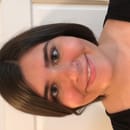While there are a lot of amazing, powerful women today, there are a lot of powerful women in history. When I heard about our theme this week, I knew I wanted to take a historical perspective, because there are so many accomplished women who had to deal with society while succeeding. I wanted to focus on that. In honor of Her Campus being an all-women inclusive publication, I wanted to look at the woman who started one of the first feminist magazines and the idea of Women’s Studies as a class you can take today.
Florence Howe got her start in activism in 1964, after opening a school in the basement of the Blair Street Church in Jackson, Mississippi. Later in her Goucher College composition class, Howe noticed that the young women in her class never looked from the point of view of the women in the works they studied. The discussion became about how the girls’ parents treated them differently from their brothers. It was hard to get them to admit that they were treated differently, so she sent them home with this idea as a writing topic. Students then asked her why there were no women writers studied in her 18th century writers course. Howe realized that she had only studied male writers, and something here was very wrong. Her course was then known as “Identity and Expression.” It became more popular around 1969, when the Women’s Movement came to college. This composition class would become a sort of prototype of Women’s Studies classes that you see in universities today.
It was these experiences in Civil Rights and Women’s Rights that caused her to create The Feminist Press in 1970. Her goal was to publish the works of little known female writers, to give voice to marginalized women. A lot of the publication’s articles were reprints of important women writers, starting with Life in the Iron Mills, a novella anonymously published by a woman in The Atlantic in 1861. In 1973, Howe with Ellen Bass edited a landmark anthology of women’s poetry called No More Masks. Another part of The Feminist Press was the focus on different women’s issues or outlying groups of women. The best example of this is All the Women Are White, All the Blacks Are Men, But Some of Us Are Brave: Black Women’s Studies, in 1982. Throughout her life, Howe has written several books, such as The Conspiracy of the Young. She’s still around and recently celebrated her 90th birthday. I wanted to talk about her because it’s thanks to Howe that we have female-centric magazines and platforms, such as this one, today and that’s pretty powerful.



